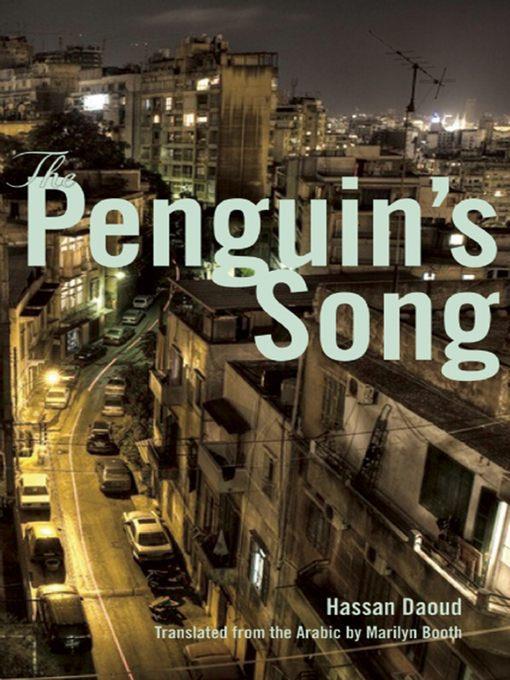
The Penguin's Song
- اطلاعات
- نقد و بررسی
- دیدگاه کاربران
نقد و بررسی

October 27, 2014
A young man, treated as an invalid because of his physical deformities, sits at home every day reading and listening to his parents bicker. Daoud's (The House of Mathilde) novel is an elegiac account of loneliness and separation. Set in post-Civil War Beirut, it captures not the immediate horrors of war, but the long emptiness of ruin that follows it. It has been 13 years since the nameless young man and his parents have been pushed out of Beirut's city center, leaving his father's shop and their home behind. Others have acclimated quickly to their new homes, reopening stores and restaurants in entryways and underneath stairwells outside the old city, but this family remains frozen in their apartment at the edge of the desert, mourning the life they have lost. The son is left to study his books and keep his father company while his mother visits with the woman downstairs. The young man fixates on the beautiful young girl who lives in the apartment beneath them. He listens as she walks through the rooms below and watches from his window, but held back by his timidity and the contagious inertia of his parents, he cannot approach her. Daoud captures the essence of the isolation of a broken city without getting weighed down in politics or specific historical events. This is a haunting story inhabited by the ghosts of past lives and demolished buildings, where desires are left unfulfilled and loneliness sweeps through every soul.

October 15, 2014
Daoud's claustrophobic novel hauntingly conveys one family's isolation after being relocated during the Lebanese civil war. Displaced by war, the family at the center of the story has left its home in the old city of Beirut for a space more sheltered from the ongoing combat. The narrator, a young man, writes of days spent in isolation reading. He silently observes the interactions of the people around him and ponders his own body, described at one point as "a sickly white mass." His father expounds at length on the virtues of watchmaking, while his mother leaves the apartment frequently, prompting questions each time about whether she will return. The narrator lusts over a neighbor, and his gaze is described in visceral, discomfortingly intimate terms-as is his way of watching the world in general. Though his bibliophily is presented more clinically, he entertains notions of peeling cataracts from his father's eyes in one memorably squirm-inducing passage. None of the characters are named, and the events play out like memories, sometimes in a linear fashion, sometimes following more thematic paths. These are characters forced to dwell in the past, their futures uncertain. Together with the single location and the sense of displacement, these elements combine to create a sense of harrowing isolation. This is a slow-burning novel of characters slowly discovering their inner natures, be they impotent, stifled or predatory. While the dreamlike tension can occasionally frustrate, Daoud's evocation of history as it is experienced is excellent. His characters live through momentous events, but their struggles to survive land them in a kind of purgatory. A novel that defies expectations as it summons up the displacement and dehumanization that can come with war.
COPYRIGHT(2014) Kirkus Reviews, ALL RIGHTS RESERVED.

November 1, 2014
A small family living on the outskirts of war-damaged central Beirut struggles daily with the realities of their claustrophobic apartment, loss of income, and the father's increasing blindness and rapid physical decline. The wife has isolated herself from husband and son, spending most of her time pacing the same stretch of sand out of boredom and frustration. The son, the "Penguin" of the title, is a physically deformed young man who yearns for the teenage girl living in the apartment below. Slowly, deliberately, books and furniture are removed from the apartment to pay for food and eventually to bury the father, and the Penguin is left alone, still hoping and dreaming. VERDICT First published in Arabic in 1998, Daoud's fierce little fable was voted "Best Arabic Novel of the Year." Like the author's House of Mathilde and The Year of the Revolutionary New Bread-Making Machine, it deftly explores how people cope with the aftermath of war and the tremendous struggle of rebuilding not only with bricks and concrete but with heart, hopes, and dreams. [See "Books for the Masses," Editors' BEA Picks, LJ 7/14.]--Lisa Rohrbaugh, Leetonia Community P.L., OH
Copyright 2014 Library Journal, LLC Used with permission.




دیدگاه کاربران